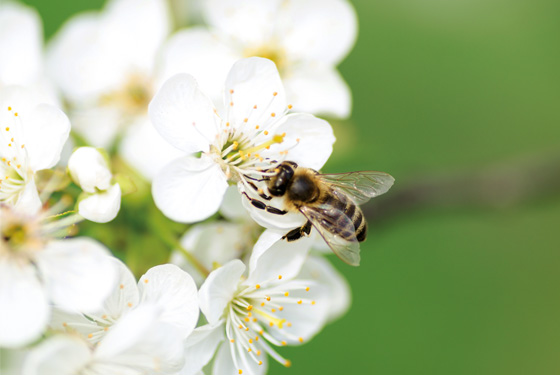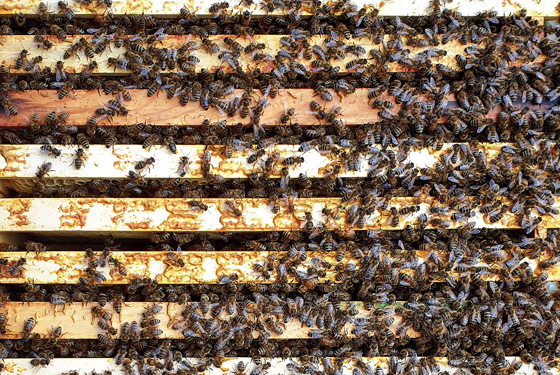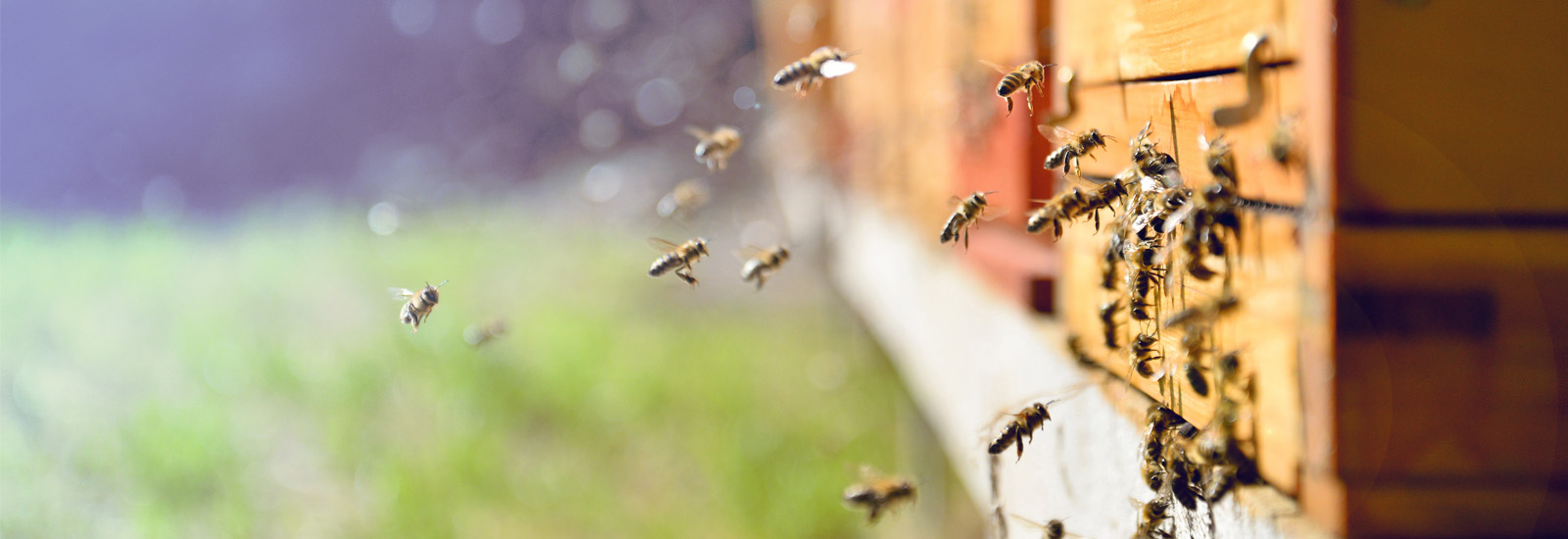We are home to over 2,000 species of cultivated and wild plants. More than 80 percent of them depend on pollination by honey bees. In Germany alone, these industrious little creatures generate an economic benefit of around two billion euros every year, making them one of the world's most important working animals. The increase in mortality of bees is therefore a major cause for concern. Since 1990, the number of bee colonies in Germany has shrunk from around 1.1 million to around 700,000. There is an urgent need for action. And we want to lead by example.
Biodiversity
Bees make the world go round
The abstract concept of sustainability becomes tangible and understandable when using the example of the bees' situation. The importance of bees is enormous, and pollination by bees is indispensable. Almost one third of all food is produced only thanks to pollination by bees. This is reason enough for the heristo group to make a targeted and conscious effort to preserve bees - both honey bees and wild bees.

A home for the bees
For many decades now, the family of entrepreneurs behind the heristo group has been very actively committed to the preservation of our ecosystem in their agricultural and forestry businesses.
In order to make a further contribution to maintaining pollination efficiency and species protection on site, since the summer of 2018 the sound of buzzing and humming has been louder than ever at several heristo sites. This is because we have settled over 100 bee colonies on various company sites throughout Germany. Numerous beehives were also placed on the company buildings at animonda and at employees' homes. Millions of these tiny, hard-working honey collectors are now an integral part of our group. The scale of the project is an outstanding landmark in this field.
Incidentally, in 2019 we were able to collect 1,400 kg of honey with our 43 colonies at that point. The bees pollinated around 12 billion flowers. In the meantime, 107 colonies are already part of our family. For 2021, we are aiming to increase this to 150 colonies and, in addition, establish a queen bee breeding programme with our own beekeeping station.

The best from the heristo honey bees
...is the delicious result of countless expeditions through the Teutoburg countryside. For 500 grams of the finest honey, a heristo honey bee has to fly out around forty thousand times, covering a distance roughly three times the circumference of the earth. The honey bees primarily collect nectar from a variety of different plants. The four varieties rapeseed honey, forest honey, early-season honey and late-season honey thus reflect, dependent on the time of year, the taste of the regional diversity of the Teutoburg region. In certified premium quality.
